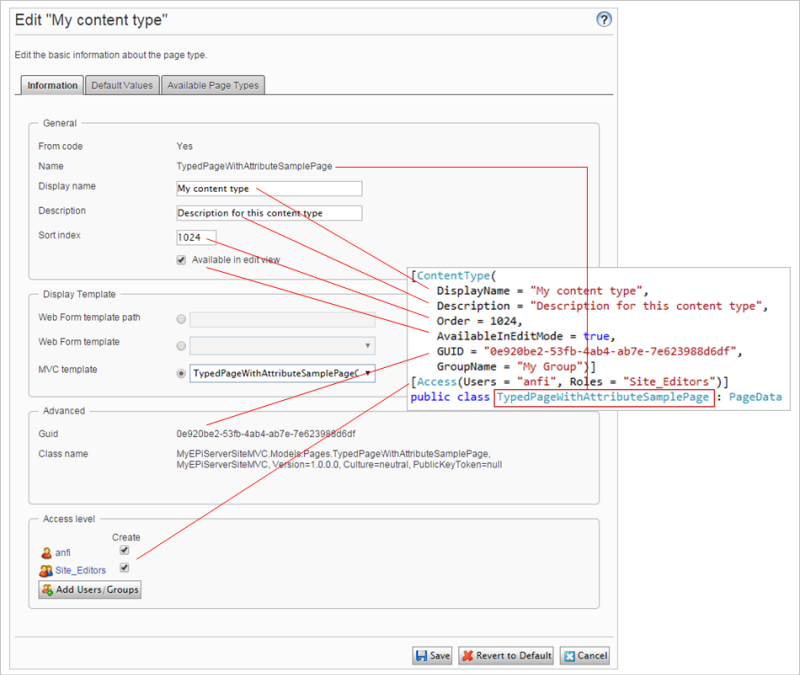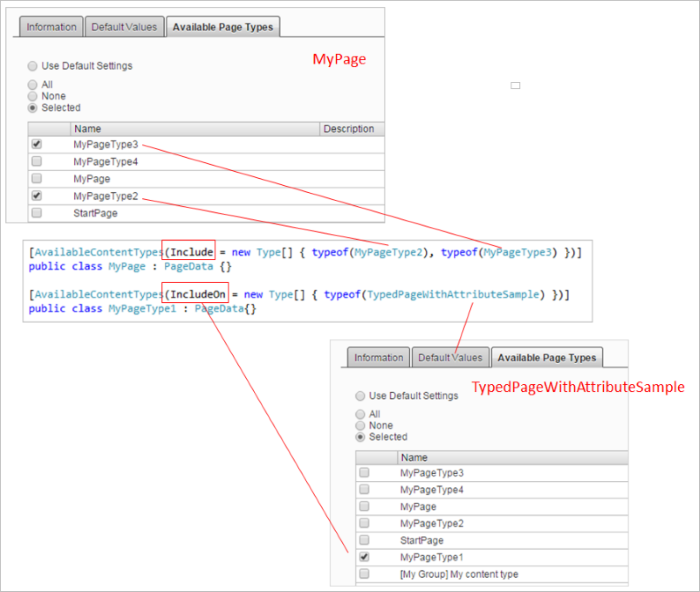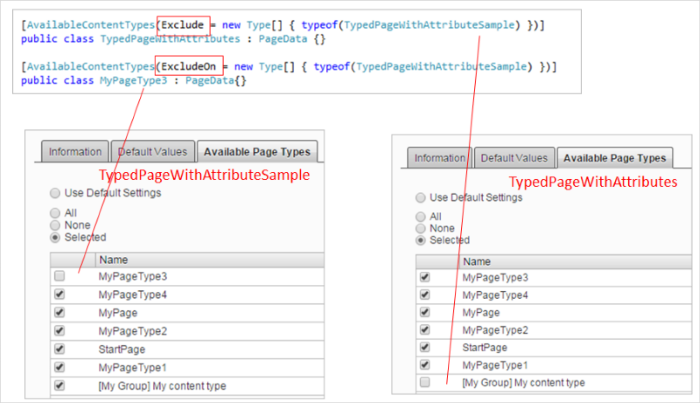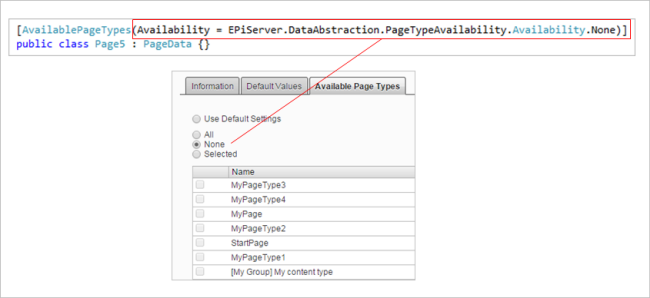ContentType attribute
Describes the ContentType attribute, used in Optimizely Content Management System (CMS) to define a set of properties needed when creating content types such as pages and blocks.
Configurable properties
Optimizely Content Management System (CMS) requires the ContentType attribute for all content types. ContentType is in the EPiServer.DataAnnotations namespace and has the following configurable properties.
| Property | Description | Default value |
|---|---|---|
AvailableInEditMode | Defines whether you can create content of this type in edit view. | true |
Description | Text that describes the function of the ContentType. | NULL |
DisplayName | The name shown in edit view for this ContentType. | NULL |
Order | The sort order used to determine the ContentType’s position in listings. | 100 |
GUID | Identifier for the ContentType. You can match the code definition to an existing definition in the database. | Guid.Empty |
GroupName | Name for grouping ContentTypes when you display them for selection in edit view. | NULL |
Access
The optional Access attribute defines which users, roles, and visitor groups have access rights to create content of a specific type in the user interface. Access applies filtering based on this attribute after ordinary access rights on content.
NoteIf the
Accessattribute is not present, any user (who has edit access) can create content of the specific type.
| Property | Description | Behavior if not specified |
|---|---|---|
Users, Roles, VisitorGroups | Defines which users, roles, and visitor groups have access rights. | No user has access to ContentType. |
Access | Defines the level of access to grant. | ContentTypes support access level Create only. |
The following image shows how CMS maps the attribute properties to settings in admin view.

AvailableContentTypesAttribute
Use AvailableContentTypesAttributes to set which content types are available under a content instance; it has the following configurable properties.
| Property | Description | Default value |
|---|---|---|
Availability | Defines whether all or no content types are available. If you set none, other settings on the attribute are ignored. | Availability.All |
Include | A type array of typed content to specify which content types are available under a content instance of the type with the attribute. | Type[0] |
Exclude | A type array of typed content to specify which content types are not available under a content instance of the type with the attribute. | Type[0] |
IncludeOn | States that the content with this attribute is available under the typed content in the type array. | Type[0] |
ExcludeOn | States that the content with this attribute is unavailable under any typed content in the type array. | Type[0] |
The types on Include, Exclude, IncludeOn and ExcludeOn can be typed content directly, or it can be the type of an interface or a base class. Registered types that can be assigned to the specified type are included at registration. For example, if an interface is specified in an Include list, then typed pages that implement the interface are included.
The following image shows how Include differs from IncludeOn and how they are mapped in admin view.
Includeexcludes typed content except that which is specified.IncludeOndoes not exclude any content type for types that have all content types available.

The following image shows how Exclude differs from ExcludeOn and how they are mapped in admin view.
- If types are not registered in
Include, then registered page types are available except the types in theExcludespecifications. - If types are registered in
Include, then those types are available except the types in theExcludespecifications.

The following image shows how Availability is mapped to settings in admin view.

ImageUrl
Use the ImageUrl attribute to set the icon for content types. The icon is visible in the user interface when you create content.
| Property | Description | Default value |
|---|---|---|
Path | The path to the icon to use for the page type. | NULL |
Updated 3 months ago
